Is it dangerous to exercise if you have thyroid disease?
How much is “too much” exercise?
Will exercise help you lose weight or will it hurt your metabolism?
All of these questions and more will be answered in this post which is all about exercise and thyroid problems.
You will learn the best types of exercises, how much you should be exercising, and the best way to lose weight.
Let’s jump in:
Understanding Metabolism, Exercise, and Caloric Burn
We really can’t have a discussion about exercise without at least touching on the idea of metabolism.
The term metabolism is often used when referring to the number of calories that your body burns throughout the day.
It’s also commonly referred to as resting energy expenditure (REE) and resting metabolic rate (RMR) (1).
And it is your metabolism that accounts for the largest number of calories that you burn each and every day (not how much you exercise!).
Your metabolism is responsible for around 50 to 90% of the total amount of calories that you burn (2) each day.
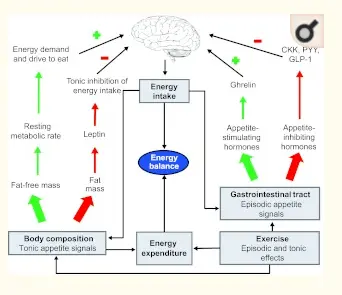
Your body uses this much energy because it must keep you alive by beating your heart, helping you think, helping to digest your food, and so on.
These things MUST happen every single day and they are very energy intensive (meaning it requires a lot of energy).
So if around 70% (I’m taking an average between 50 and 90% here) of the calories you burn each day is from your metabolism, what accounts for the other 30%?
That other 30% really depends on your activity level and it can change from day to day (3) (which alters your appetite!).
Activities such as stress, extra walking, going shopping, doing chores around the house and so on all require more energy, and these factors account for the other 30%.
It may be helpful to look at a 2,000-calorie-per-day example to drive this information home.
Let’s assume that you burn 2,000 calories per day (on average).
Using the figures above we know that about 70% of the calories that you burn each day will be from your metabolism.
This accounts for around 1,400 calories per day.
Around 50-60% of your metabolism is controlled by your thyroid (4)!
Just keep this information in the back of your head, we will come back to it later.
The remaining 30% of the calories that you burn comes from other sources and your activity level which accounts for 600 calories per day.
So, when most people want to lose weight they think they can burn more calories simply by increasing the amount that they exercise (5).
But let’s consider another example here.
What if your thyroid is sub-optimal and you aren’t being treated appropriately?
If your thyroid is responsible for around 50% of your metabolism and your thyroid is not functioning well that means you may be losing out on an extra 400 calories per day from a damaged metabolism!
It may be far easier to simply address your thyroid problem to help increase the number of calories you burn by an extra 400 per day because trying to burn an extra 400 calories per day would take a significant amount of time through exercise.
Does that mean you should avoid exercise?
Not by a long shot!
But it does mean you may want to ensure that your thyroid is working properly before you jump into serious workout routines.
Should you Exercise if you have Thyroid Issues?
It may sound like I’m discounting the benefit of exercise and I don’t want that to be the case.
Exercise is critical to living a long and healthy life (6).
It’s also incredibly helpful if you have thyroid disease and can help manage your hormones.
So the answer to the question as to whether or not you should exercise is a definite YES.
But what you need to understand is the amount and type of exercise that you use will vary from individual to individual.
It also means that there isn’t one single “best” exercise routine that you HAVE to do.
Exercising is beneficial to your body (and your thyroid) because it can help improve your metabolism.
It does this by increasing the activity and size of your muscles.
And it takes a considerable amount of calories to keep your muscles happy and active (7).
Increasing muscle mass will help you improve the overall amount of calories that you burn in that 70% portion.
In addition, exercising also has the benefit of increasing the number of calories that you burn day to day.
This will help increase the number of calories that you burn in the 30% portion.
Another point worth mentioning has to do with your goal when you exercise.

If you are like most people you probably only consider exercising as a means to manage your weight.
And this is the wrong way to look at it.
You want to exercise because it will help your body manage your hormones, manage the flow of calories, and which tissues utilize those calories as a way to improve your muscle mass.
Many of these things may help with weight loss, but that shouldn’t be your goal!
As you exercise more and more, you may notice that your muscle mass increases accordingly.
This increase in muscle mass is often associated with a decrease in fat mass (this is a good thing) but it may keep your weight “neutral” or the same.
And this is NOT a bad thing.
Your goal when losing weight should be to lose fat mass, and that’s exactly what exercise will do.
Exercise and the Stress it Causes to Your Body (And your Adrenals)
One of the questions I get asked from people on this blog has to do with adrenal function and exercise.
Many patients with hypothyroidism also happen to suffer from the symptoms associated with “adrenal fatigue” and many of these patients also have abnormal or sub-optimal serum cortisol levels.
If you fall into this category is it still safe to exercise?
You have to consider that exercise is a stressful event for your body (8).
The whole goal of exercising is to break down the body slightly while allowing it enough time to heal so it grows back stronger than it was before.
When you keep this in mind it’s easy to understand that true exercise is not something that you want to do every single day.
If you do not allow your body sufficient time to heal then your exercise may just be adding more and more stress to your body (this is a bad thing!).
This element of stress can compound other sources of stress such as lack of sleep, a poor diet, social stressors, and more.
The net result?
More stress to your body and the worsening of your symptoms such as fatigue, weight gain, crashes in the midday, and more.
This means, contrary to popular belief, that doing spin classes for 1 hour each day may not be the best way for you to lose weight and feel better!
So what are you supposed to do?
You should aim to match the intensity of your exercise routine to your personalized energy level.
By matching the intensity of your workouts to your energy level you can stay within the “optimal” range of exercise without risking damage to other hormones.
As you match your intensity to your energy level you will find that your energy level IMPROVES, your fatigue REDUCES and you start to feel better overall.
I will go over how to match this in a bit but first I want to focus on the types of exercises that you can (and should) be doing.
Is there a “Best” Type of Exercise if you have Thyroid Problems?
There isn’t a single “best” type of exercise for your thyroid.
There also isn’t an exercise that will improve your thyroid function!
But, there are several types of exercises that would be considered “approved” and helpful if you have a thyroid problem.
In general, you want to look at two basic types of exercises:
#1. High-intensity interval training.
Exercises that fit into this category include:
- Circuit training (body weight)
- Circuit training (9) (weight training with resistance)
- Cycling
- Strength training
- Virtually any exercise can provide this benefit if taken to the extreme
#2. And low-intensity exercise.
Exercises that fit into this category include:
- Yoga
- Pilates
- Walking
- Swimming
- Household chores
How Often Should you Exercise?
Most people probably know the various types of exercises available to them, but they struggle when it comes to frequency.
Meaning, how often should you be exercising?
How often should you do high-intensity interval training and/or low-intensity training?
The answer is actually quite simple:
You’ll know if you are exercising at a sufficient rate if you feel energized after you exercise.
Exercising should lift you up, it should increase your energy, and should make you feel good.
If you are exercising and you find that you are wiped out for several days afterward then that is a sign that you are over-exercising!
You will want to avoid this behavior as much as possible because it can lead to more metabolic damage in the long run.
If you are new to thyroid-related issues and you want to get started then the goal should be to start low and slow.
Starting with high-intensity exercise for 15 minutes 1-2x per week is usually a safe bet.
As you progress, and as you listen to your body, you can increase both the duration and frequency with which you exercise.
Something like 15-20 minutes of high-intensity interval training 2-3x per week usually works very well for most people.
This can be supplemented with daily low-intensity activities.
As you determine which exercises you should be doing it’s worth pointing out that you should put preference on those types of exercises that help to build muscle mass in your body.
The more muscle mass you have the higher your metabolism will be.
You can do this by focusing on the major muscle groups in your body:
- Chest
- Legs
- Back
- Shoulders/arms
Focusing on these muscle groups will give you the biggest “bang for your buck” so to speak.
If you focus on weight training just make sure that you do not exercise muscle groups that are already sore from previous exercise regimens.
Adding Intermittent Fasting & Sauna to Your Exercise Routine
Lastly, you can also supplement your exercise routine with a couple of other therapies which have the capacity to enhance your results.
It may be tempting to take pre-workout boosters, thermogenics,s or caffeine-laced supplements but do your best to avoid these supplements if you have thyroid issues.
They can actually make your fatigue worse in the long run by putting excess stress on your body as you exercise.
As you avoid these therapies you can also consider adding some others.
Specifically sauna therapy and/or intermittent fasting.
You can add sauna therapy to the end of your workout session which will act to increase your body temperature (10), help you sweat and detox and improve circulation (11) to your muscles.
Intermittent fasting will help you burn more calories and impact your hormones (especially insulin and leptin) if combined with exercise (particularly HIIT).
As always, proceed with caution if you have never tried these therapies before.
They certainly have the ability to improve your results but they also may cause side effects if you aren’t sure how much your body can manage.
Conclusion
Exercising with thyroid issues is an important and complex topic!
Exercising can help benefit your body, help with your weight, manage your metabolism, and more.
But in order to get these benefits, your exercise routine must be targeted to your body.
You can do this by listening to your body.
If you aren’t sure where to start you may find benefit in looking for a functionally minded health coach to help guide you along the way.
Now I want to hear from you:
Are you struggling with exercise as a thyroid patient?
Have you been able to realize any benefits from your workout routine?
What workouts have helped you? Which have not?
Leave your comments or questions below!
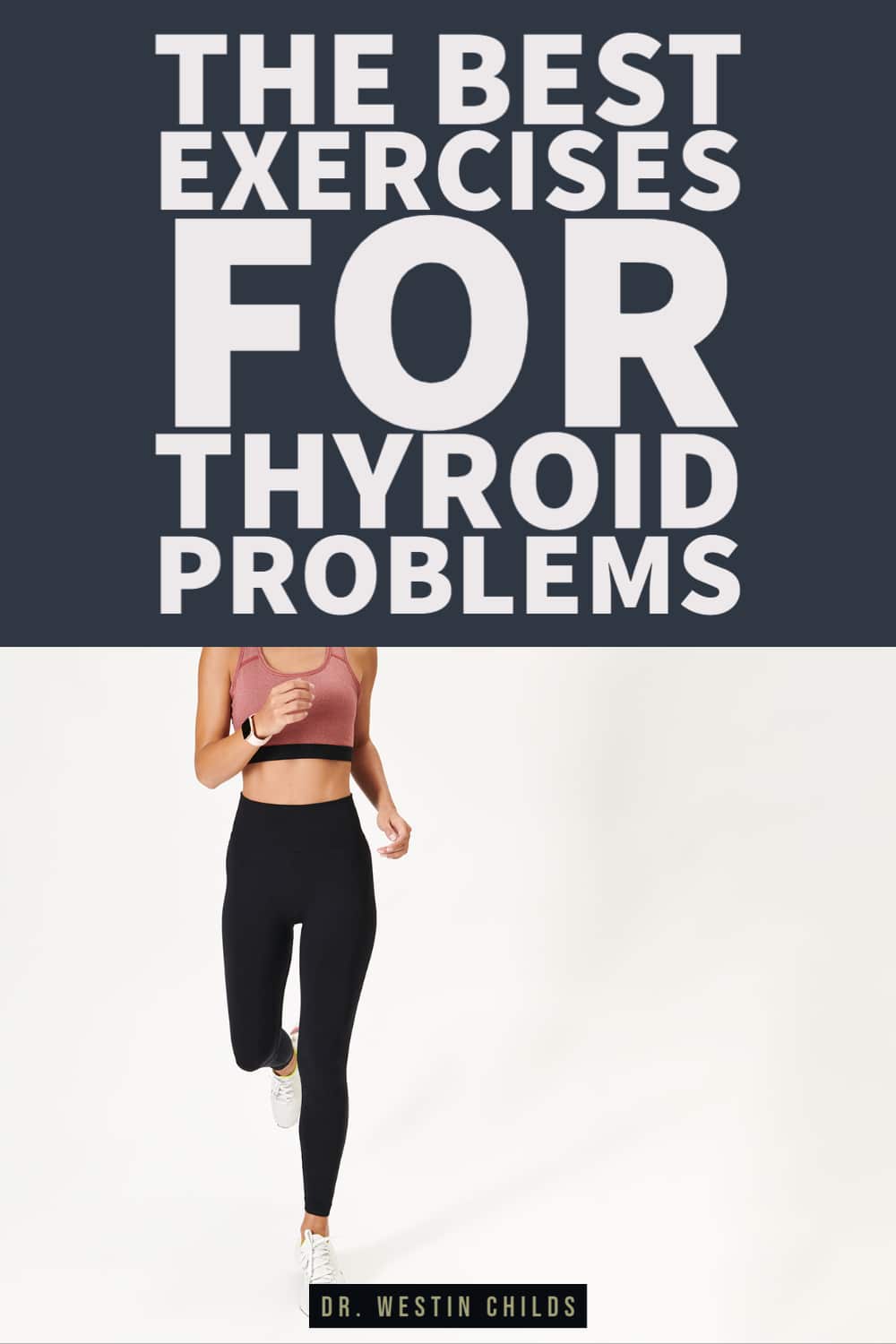
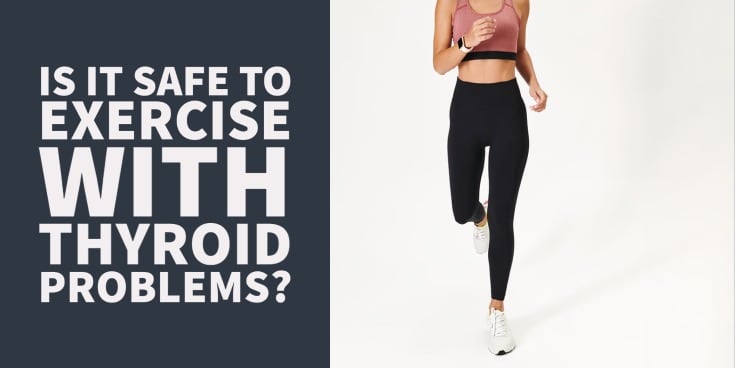
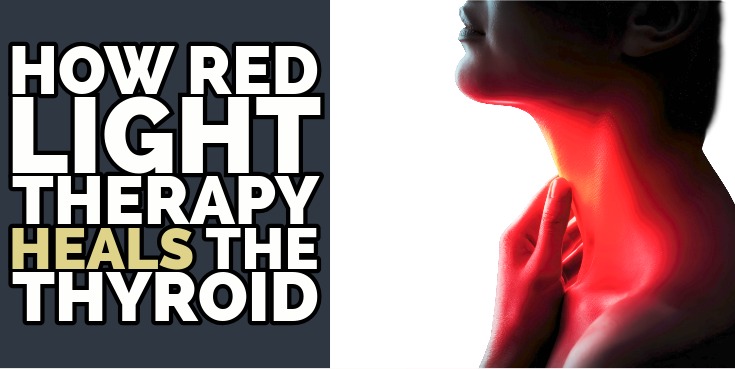
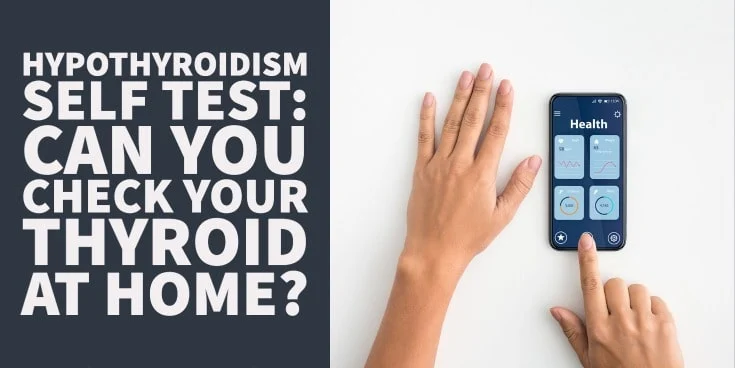
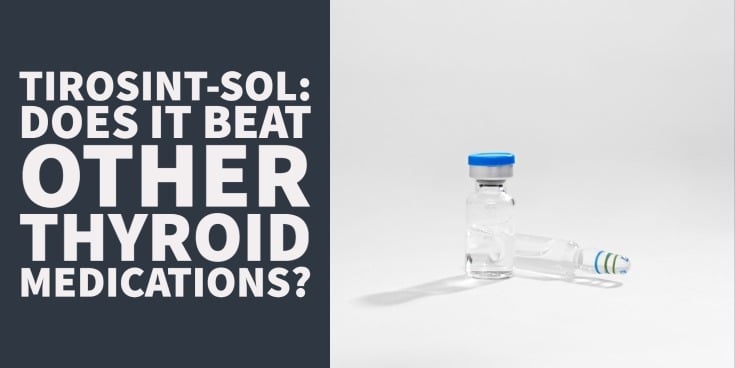

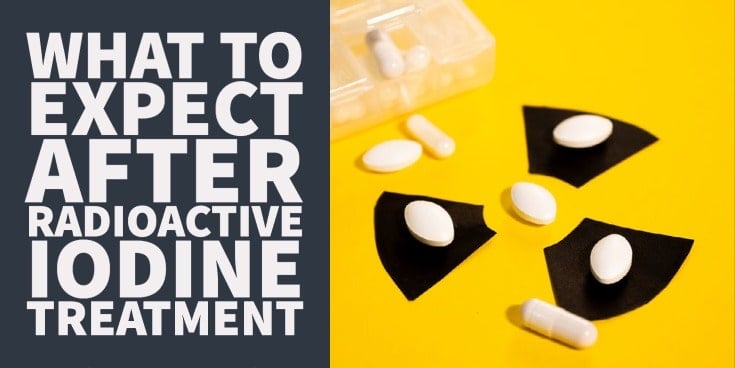


Thank you for a great article. It can be confusing to understand whether you are helping yourself or hurting yourself when it comes to exercise and Hashimoto’s. I have read this page several times because I keep having the same questions since I have always enjoyed working out. I recently have been able to put my Hashimoto’s into remission and have journaled my experience on my website. http://storyofmyhealth.com/index.php/2018/03/19/finding-remission-hashimotos-thyroiditis/
I was able to heal from Hashimoto’s because of people like you who provide good and reliable information. Thank you.
Hi Laura,
No problem and thanks for sharing your story! I hope it helps people who are in the same situation.
Hi Dr.Childs
Does this article also apply to us without a thyroid ?
Thanks, Grace
Hi Grace,
Yes, the information is the same for those without a thyroid.
I am starting back to exercise after a very difficult 10 years including hypothyroidism, depression, cancer and sleep apnea.
I have an elliptical but can do maybe 7 minutes on it, w/o becoming exhausted. I plan on starting light weight training and moderate walking for 30 min a day or whatever I can handle.
I’m 50 lbs overweight, and eating about 1300 calories / per day—a 200 cal am meal and then the rest after 6:00 pm. over about an hour.
The C-pap has definitely helped the fatigue. My thyroid hormone levels are WNL and my TSH is around 1.0. I take Synthroid 75 ug/day and Liiothyronine 25 ug/day.
I’d like to feel better, but this is a huge improvement. I plan on making an appt. w/ a NP who has worked in functional endrocrinology for 45 years. Perhaps she can shed more light. I’m thinking I have Hashimoto’s thyroiditis b/c it’s common, but I haven’t had thyroid antibodies drawn. I’m going next week to have a thyroid U/S.
What difference would it make (having Hashimoto’s) in my treatment?
I think what would also help a lot right now, is either a trump coronary or impeachment and some action on climate warming.
Do you have any posts or videos for people diagnosed with Graves disease and who were treated by RAI? So hard to get help. Current endocrinologist only uses TSH for diagnosis. I have been going through this for 18 years and the only 2 doctors who have helped me live a normal life are gone – one to another state and the other was murdered last year. I’m getting sicker.
Hi Janet,
Yes! You can find more information in these links:
https://www.restartmed.com/radioactive-iodine/
https://www.restartmed.com/what-to-expect-after-radioactive-iodine-treatment/
I take levo. Tried natural and the addition of t3. I always got more hypo symptoms on with them as I have just one symptom on levo. My hair is not growing.do you think changing to tirosint could help?
Hi Kinga,
It’s probably more related to your dose than it is to the medication itself. Most people are seriously underdosed when they switch from levo to any other type of thyroid medication.
Thanks for the information. I currently do jazzercise 4 days a week. (Peak five minutes, cardio 60%, fat burning 30% of time. Includes hand weights and resistance for 20 min.) I am completely weight loss resistant, leptin resistant, hypothyroid, menopausal, adrenal fatigued. I’ve been doing jazzercise, which I love, for two years, so I think I’m beyond stress on my body stage. After watching video, Questions: 1. should I move it back to only 2-3 times a week then and add more low intensity? 2. Is my heart rate being at peak usually 2-5 minutes enough as described to meet HIIT requirements? 3. for detox mentioned, since I sweat almost entirely in class, can that count as the detox rather than worrying about finding a sauna? 4. At the end, it said also to detox you can do IF. That’s confusing. How is that detox in place of sauna? Is that what you meant? Thank you so much. Your assistance has been probably the single most important medical help I’ve ever received!!
Thanks for this post. I have hypothyroidism and had wondered if intermittent fasting would help. Do you have any advice on when would be the best time to start a fast? Also, how long should it last? Thank you so much!
What is intermediate fasting?
Does it apply for subclinical hypothyroidism as well where T3 and T4 are normal but TSH is abnormally high?
I have been exercising for quite some and have lost fat but my weight remains same.
Recently I checked my caloric intake because I have stomach surgery (hiatal hernia and the esophageal sphincter was 4 times bigger than it should have ever been plus zero to no stomach acid). I found out that I am only eating maybe 800 to 1000 calories a day. I just get so full and stay full all day or even the next day. How many calories should I be shooting for?
Yes, I struggle with thyroid issues. I have since I was small. I cannot do any high intensity training because I down for weeks afterwards. The only thing I have noticed I can do is yoga and walking but even then sometimes I’m strained and tired afterwards. Ugh!!! I REALLY want and need to lose weight but ….
Thanks for the information. I’ve battles Hashimoto’s thyroiditis for 20 yrs. I currently have been exercising 2-4 days a week at my local YMCA. I take a body pump class, yoga, HIIT, cardio is elliptical machine, sauna (twice a week.), and a piyo class.
According to the scale I have not last much weight at all, but I’ve dropped 2 dress sizes. Medication is Levo 0.112mg daily. I’ve found for me yoga, 1-2 HIIT weekly, and a body pump is less wear on my feet and back.
Should I go to the sauna after each class or continue twice a week?
I am also a cancer survivor and my M.D.’s are always saying lose weight and keep blood pressure down. My Bp has been normal.
Thank you for any advise you give me.
Hi Linda,
As long as your body can handle it, it would be a good thing 🙂